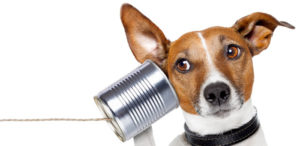How active listening can improve your relationship
Active listening sounds like a pretty simple and easy thing to do yet when I work with couples it’s one of the skills that we spend a lot of time on. I often have each partner roleplay what I call the two roles in any productive conversation. One partner is the Speaker and the other is the Listener. Your role as the Listener, and this is the most crucial role I believe, is to make sure that you have really “heard” what your partner is saying. I don’t just mean that you can parrot their actual words back at them. Anyone can do that if they are half-listening. The role of the Listener is about making sure that what the Speaker intended is what the Listener understood them to be saying. As the Listener you have to give the Speaker your undivided attention, that means no only turning off the TV and putting away the cellphone, it also means blocking out your own mental distractions. You cannot simultaneously be listening and formulating your response at the same time.
Active listening doesn’t just help with intimate relationships. You will find that if you practice the skills in this blog it will help you get along better with co-workers and friends and maybe, if you’re lucky, your in-laws.
Check out this post from the Gottman blog about active listening and read their tips for improving your communication, which will likely improve your relationship.
Their tips include:
Focus on being interested, not interesting. – Don’t sit the entire time the other person is speaking in anticipation of telling your own story. Absorb what they are saying and know that you will get a chance to express yourself as well.
Ask questions – Don’t just leave it up to the Speaker. Instead actively engage them by asking questions. Ask about their thoughts and feelings so that you can clarify what they are trying to get across to you. If you want to build your relationship, ask about their desires and future plans.
Respond with an occasional brief nod or sound / From time to time, paraphrase what the speaker says – This lets the Speaker know that you actively engaged in the conversation and helps them feel they are being “heard”. It also helps the Listener stay with the conversation when the Speaker has a lot that they need to convey.
Let go of your own agenda – Again, you cannot simultaneously be listening and formulating your response at the same time. You will have a chance to express your own thoughts and feelings and when you do you will appreciate the same level of attention that you are showing to the Speaker.
Do you need help with active listening skills? I’m glad to work with couples as well as individuals in developing this essential skill for improving your relationship with almost everyone from a romantic partner to a business partner. Please contact me today and let’s set up an appointment to get started building this essential skill. I can be reached at (706) 534 – 8558 or by e-mail at [email protected]. I look forward to working with you!


